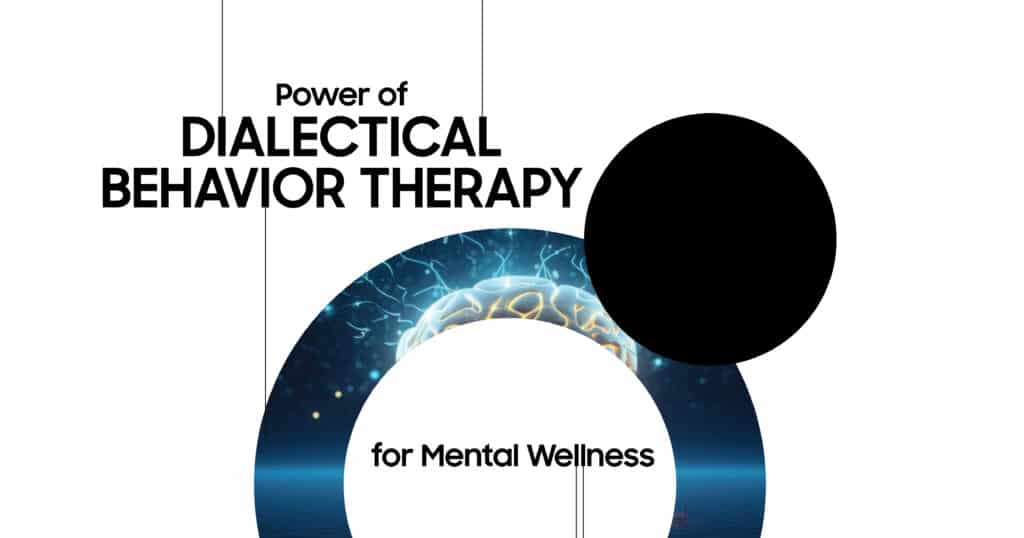In the labyrinth of mental health, where emotions can sometimes feel like a rollercoaster ride and relationships akin to a complex dance, finding effective strategies for navigating the twists and turns can be akin to finding a needle in a haystack. However, fear not! Enter Dialectical Behavior Therapy (DBT), a dynamic approach that offers a compass to steer through the tumultuous seas of our inner worlds. In this article, we will embark on a journey to unravel the mysteries of DBT and uncover its profound impact on mental wellness.
Understanding the Essence of Dialectical Behavior Therapy
At its core, Dialectical Behavior Therapy, or DBT for short, is a therapeutic modality that combines elements of cognitive-behavioral therapy (CBT) with concepts of dialectics. Developed by Dr. Marsha Linehan, DBT was initially designed to treat individuals with borderline personality disorder (BPD). However, its efficacy has since been recognized in addressing a wide range of mental health concerns, including depression, anxiety, and substance abuse.
The Dialectical Dance: Balancing Acceptance and Change
Central to DBT is the dialectical principle of balancing acceptance and change. This dialectical dance acknowledges the paradoxical nature of human experience—embracing both the need for acceptance of oneself and the imperative for growth and transformation. In essence, DBT encourages individuals to cultivate self-compassion while simultaneously striving for personal development.
Equipping Individuals with Essential Skills
DBT is renowned for its practical and skills-based approach. Through a combination of individual therapy, group skills training, phone coaching, and consultation team meetings, individuals undergoing DBT learn a repertoire of skills to enhance emotional regulation, distress tolerance, interpersonal effectiveness, and mindfulness.
Riding the Waves: Embracing Emotional Regulation
One of the cornerstones of DBT is emotional regulation. In a world where emotions can sometimes resemble a tempestuous sea, learning to ride the waves becomes paramount. DBT equips individuals with strategies to identify, understand, and manage their emotions effectively. From mindfulness practices to distress tolerance techniques, DBT offers a toolkit for weathering the storms of intense feelings.
Navigating the Social Terrain: Enhancing Interpersonal Effectiveness
In the intricate tapestry of human relationships, communication is key. DBT recognizes the importance of effective interpersonal skills in fostering healthy connections. Through role-playing, behavioral rehearsal, and skill-building exercises, individuals learn how to assert their needs, set boundaries, and navigate conflicts constructively.
Unleashing the Transformative Power of DBT
As individuals engage in the journey of DBT, they often experience profound transformations in various facets of their lives. Let’s delve deeper into the transformative power of DBT:
– Enhanced Self-Awareness: Through mindfulness practices and emotional regulation techniques, individuals develop a deeper understanding of their thoughts, feelings, and behaviors.
– Improved Relationships: By cultivating interpersonal effectiveness skills, individuals foster healthier and more fulfilling relationships with others.
– Increased Resilience: As individuals learn to navigate life’s challenges with greater emotional resilience and distress tolerance, they become better equipped to cope with adversity.
– Greater Overall Wellbeing: Ultimately, the culmination of these skills and insights leads to a greater sense of overall wellbeing and fulfillment in life.
Frequently Asked Questions about Dialectical Behavior Therapy
1. Is DBT only for individuals with borderline personality disorder?
– While DBT was initially developed to treat borderline personality disorder, its principles and techniques have been adapted to address a wide range of mental health concerns.
2. How long does DBT treatment typically last?
– DBT treatment duration can vary depending on individual needs and treatment goals. However, it often involves a structured program spanning several months to a year or more.
3. Can DBT be effective for managing emotions in everyday life?
– Absolutely! DBT equips individuals with practical skills for managing emotions in various contexts, making it applicable to everyday life situations.
4. Is it necessary to attend group skills training sessions as part of DBT?
– While individual therapy is a core component of DBT, group skills training sessions offer valuable opportunities for learning and practicing DBT skills in a supportive environment.
Conclusion: Embracing the Journey to Mental Wellness with DBT
As we conclude our exploration of the transformative power of Dialectical Behavior Therapy, it becomes evident that DBT is more than just a therapeutic approach—it’s a journey towards enhanced mental wellness. By embracing the principles of acceptance and change, equipping oneself with essential skills, and unleashing the transformative potential of DBT, individuals can navigate the complexities of their inner worlds with resilience and compassion. So, why wait? Take the first step on this dynamic journey towards mental wellness with DBT today!





